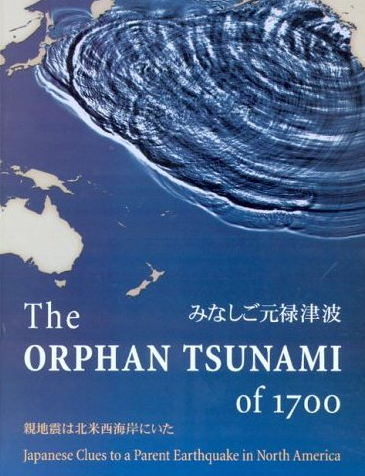
Tuesday, March 18, 2008
Why I have gone on and on about oil for the last seven years
Because the story is so long, requiring some understanding about peak oil, the price of oil, petrodollars, major oil suppliers importing most of their goods from Europe, commodity runs, the automobile-dependent layout of the US, and the "enterprise", people have asked me why I went on and on about these things over the last decade. I should have given the overview first, but was learning the pieces myself as I was going along. This is the basic idea:
Since the end of World War II, oil is bought and sold only in dollars (that is why they are called petrodollars). Therefore, if your currency is, for example, the euro, the price of oil depends not only on the price of oil in petrodollars, but on the value of the euro relative to the dollar.
When everyone realizes that the oil starts to run out, the price of oil in petrodollars will go through the roof. This will have two primary effects: there will be a huge incentive to buy and sell oil in something other than the dollar (this has already started), and as the dollar gets dumped, the price of oil in petrodollars will skyrocket further (this is happening now, at least temporarily). As the price skyrockets, there will be even more incentive to buy oil directly. Last ones out will be left holding the bag. Finally, the petrodollar goes, and the benefits of having the world's dominant fiat currency goes with it.
The dollar has already dropped by 40% over the last 5 years as measured by a basket of currencies. The current increase in price is in part due to the buying of futures of all kinds of commodities using the dollars people are holding because, well, they have already lost nearly half their value, so better to buy now things you need before they becomine worth even less.
That is how I thought the "enterprise" would come to a crashing end. I expected this to come say between 2010 and 2015, so I thought there was still time.
I didn't realize that the fraud on Wall Street would pop before there was consensus that the oil would run out (and the producers are still denying it and the Wall Street Journal still publishing the denials).
The run on oil will probably peter out, especially with a recession, and that will delay the peak oil day of reckoning somewhat, but that is still there, so even if we manage to avoid a meltdown now, we may see this all over again, depending on how sharply oil production starts to drop when the peak does come. Among the largest oil fields the world has ever seen, some of them are dropping by 20% a year...
This was first brought to my attention by, as usual, Scientific American (one of the greatest resources for broadening science knowledge, even if many professors are clueless and think "it is for high school students"... several particularly stupid profs actually said that to me 25 years ago... trying to hide what they did not know... I have read it cover-to-cover for the last 30 years or so, and I will pit what I know against what they know any day... I can't imagine how I would feel now if I had actually listened to them!).
In the March 1998 issue article "The End of Cheap Oil", the basic arguments were outlined. So far, the graphs and predictions are more or less on track. This is why I started paying attention to this issue. I use magazines, newspapers, and the Net to bring things to my attention, and then adjust the amount of attention given to particular topics. You cannot decide on anything if you don't know what the issues are.
If you haven't watched these yet, do so immediately. Just as the middle of an influenza pandemic is no time to ask what a virus is, so the near future will not be the time to ask what peak oil and petrodollars are... events can change the world overnight, and there will be no time to understand events if you haven't done your homework.
The Beginning of the End of the Petrodollar
Crude: the Incredible Journey of Oil
Frontline: House of Saud
Petrodollar Recycling
Year country hit peak oil. Oil output has declined since the year given, sometimes to essentially zero.
Japan: 1932
Germany: 1966
Libya: 1970
Venezuela: 1970
USA: 1970
Iran: 1974
Nigeria: 1979
Russia: 1987
France: 1988
Indonesia: 1991
UK: 1999
Norway: 2000
Oman: 2000
Mexico: 2003
Australia (disputed): 2004; 2001
Peak oil production has not been reached in the following nations (numbers are estimates and subject to revision):
Iraq: 2018
Kuwait: 2013
Saudi Arabia: 2014
If the above is not terrifying to you, it should be.
This proverb has been around in various forms for the last 600 years or so.
For want of a nail the shoe was lost.
For want of a shoe the horse was lost.
For want of a horse the rider was lost.
For want of a rider the battle was lost.
For want of a battle the kingdom was lost.
And all for the want of a nail.
Modern version
For want of regulation the mortgage was lost
For want of a mortgage the collaterized debt package was lost
For want of a collaterized debt package the fund was lost
For want of a fund the brokerage was lost
For want of a brokerage the petrodollar recycling ponzi scheme was lost
For want of the petrodollar recycling ponzi scheme the Empire was lost
And all for the want of regulation
Since the end of World War II, oil is bought and sold only in dollars (that is why they are called petrodollars). Therefore, if your currency is, for example, the euro, the price of oil depends not only on the price of oil in petrodollars, but on the value of the euro relative to the dollar.
When everyone realizes that the oil starts to run out, the price of oil in petrodollars will go through the roof. This will have two primary effects: there will be a huge incentive to buy and sell oil in something other than the dollar (this has already started), and as the dollar gets dumped, the price of oil in petrodollars will skyrocket further (this is happening now, at least temporarily). As the price skyrockets, there will be even more incentive to buy oil directly. Last ones out will be left holding the bag. Finally, the petrodollar goes, and the benefits of having the world's dominant fiat currency goes with it.
The dollar has already dropped by 40% over the last 5 years as measured by a basket of currencies. The current increase in price is in part due to the buying of futures of all kinds of commodities using the dollars people are holding because, well, they have already lost nearly half their value, so better to buy now things you need before they becomine worth even less.
That is how I thought the "enterprise" would come to a crashing end. I expected this to come say between 2010 and 2015, so I thought there was still time.
I didn't realize that the fraud on Wall Street would pop before there was consensus that the oil would run out (and the producers are still denying it and the Wall Street Journal still publishing the denials).
The run on oil will probably peter out, especially with a recession, and that will delay the peak oil day of reckoning somewhat, but that is still there, so even if we manage to avoid a meltdown now, we may see this all over again, depending on how sharply oil production starts to drop when the peak does come. Among the largest oil fields the world has ever seen, some of them are dropping by 20% a year...
This was first brought to my attention by, as usual, Scientific American (one of the greatest resources for broadening science knowledge, even if many professors are clueless and think "it is for high school students"... several particularly stupid profs actually said that to me 25 years ago... trying to hide what they did not know... I have read it cover-to-cover for the last 30 years or so, and I will pit what I know against what they know any day... I can't imagine how I would feel now if I had actually listened to them!).
In the March 1998 issue article "The End of Cheap Oil", the basic arguments were outlined. So far, the graphs and predictions are more or less on track. This is why I started paying attention to this issue. I use magazines, newspapers, and the Net to bring things to my attention, and then adjust the amount of attention given to particular topics. You cannot decide on anything if you don't know what the issues are.
If you haven't watched these yet, do so immediately. Just as the middle of an influenza pandemic is no time to ask what a virus is, so the near future will not be the time to ask what peak oil and petrodollars are... events can change the world overnight, and there will be no time to understand events if you haven't done your homework.
The Beginning of the End of the Petrodollar
Crude: the Incredible Journey of Oil
Frontline: House of Saud
Petrodollar Recycling
Year country hit peak oil. Oil output has declined since the year given, sometimes to essentially zero.
Japan: 1932
Germany: 1966
Libya: 1970
Venezuela: 1970
USA: 1970
Iran: 1974
Nigeria: 1979
Russia: 1987
France: 1988
Indonesia: 1991
UK: 1999
Norway: 2000
Oman: 2000
Mexico: 2003
Australia (disputed): 2004; 2001
Peak oil production has not been reached in the following nations (numbers are estimates and subject to revision):
Iraq: 2018
Kuwait: 2013
Saudi Arabia: 2014
If the above is not terrifying to you, it should be.
This proverb has been around in various forms for the last 600 years or so.
For want of a nail the shoe was lost.
For want of a shoe the horse was lost.
For want of a horse the rider was lost.
For want of a rider the battle was lost.
For want of a battle the kingdom was lost.
And all for the want of a nail.
Modern version
For want of regulation the mortgage was lost
For want of a mortgage the collaterized debt package was lost
For want of a collaterized debt package the fund was lost
For want of a fund the brokerage was lost
For want of a brokerage the petrodollar recycling ponzi scheme was lost
For want of the petrodollar recycling ponzi scheme the Empire was lost
And all for the want of regulation
Subscribe to:
Post Comments (Atom)

No comments:
Post a Comment